Lord Coe denies misleading MPs over Russian doping scandal
Emails raise questions over when IAAF chief knew about allegations
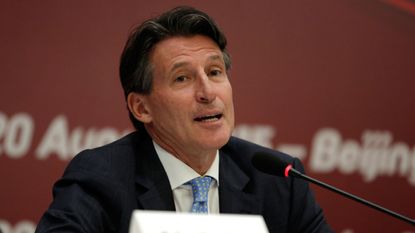
Lord Coe has denied misleading MPs after emails emerged that appeared to show he knew about allegations of blackmail and failed drugs tests involving Russian athletes months before they became public.
In December 2015, the IAAF chief told a select committee he had not been aware of claims about the "corruption of anti-doping processes in Russia" until the broadcast of a German TV documentary on the subject in December 2014.
However, Matt Lawton of Mail Online reports that emails provided by Coe "show the double Olympic champion referencing 'serious allegations' regarding the blackmail of Russian athlete Liliya Shobukhova on August 14, 2014".
Subscribe to The Week
Escape your echo chamber. Get the facts behind the news, plus analysis from multiple perspectives.

Sign up for The Week's Free Newsletters
From our morning news briefing to a weekly Good News Newsletter, get the best of The Week delivered directly to your inbox.
From our morning news briefing to a weekly Good News Newsletter, get the best of The Week delivered directly to your inbox.
In a message, Coe wrote he had "now been made aware" of the allegations.
According to The Independent, "the email, released by the committee, was dictated by Coe to a temporary PA, several hours after he received a telephone call from the former athlete and administrator Dave Bedford, telling him that senior figures close to IAAF president Lamine Diack had forced the Russian marathon runner Liliya Shobukhova to pay £360,000 to conceal a positive drug test".
Mark Daly of the BBC's Panorama says the messages "cast fresh light on the issue of what Lord Coe knew - and when - about the burgeoning Russian corruption and doping scandal which has blighted world athletics".
Coe has denied misleading MPs. He says he was on holiday when the email was sent and had not properly read the claims and simply forwarded them to the correct authority.
"Coe insists there was no discrepancy in statements he made in December 2015 but gives an explanation that will certainly leave him open to an accusation that he did not treat Bedford's email with the respect it demanded," says Lawton.
It has also prompted calls for Coe to be recalled before MPs. Committee chairman Damian Collins told the BBC: "Whatever excuse he gives, it is clear that Lord Coe decided not to share with the committee information that was relevant to our inquiry on doping in sport."
Create an account with the same email registered to your subscription to unlock access.
Sign up for Today's Best Articles in your inbox
A free daily email with the biggest news stories of the day – and the best features from TheWeek.com
-
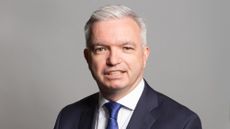 Mark Menzies: Tories investigate MP after 'bad people' cash claims
Mark Menzies: Tories investigate MP after 'bad people' cash claimsSpeed Read Fylde MP will sit as an independent while party looks into allegations he misused campaign funds on medical expenses and blackmail pay-out
By Arion McNicoll, The Week UK Published
-
 'Another day of chaos in DC'
'Another day of chaos in DC'Today's Newspapers A roundup of the headlines from the US front pages
By The Week Staff Published
-
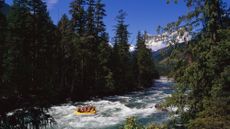 6 scenic white water rafting destinations to get your heart racing
6 scenic white water rafting destinations to get your heart racingThe Week Recommends Have a rip-roaring time on the water
By Catherine Garcia, The Week US Published
-
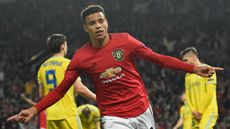 Mason Greenwood: footballer arrested on suspicion of rape and assault
Mason Greenwood: footballer arrested on suspicion of rape and assaultSpeed Read Man Utd confirm the striker will not train or play until further notice
By The Week Staff Published
-
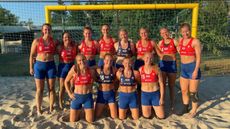 Handball: swapping bikini bottoms for tight pants
Handball: swapping bikini bottoms for tight pantsSpeed Read Women competitors will be required to ‘wear short tight pants with a close fit’
By The Week Staff Published
-
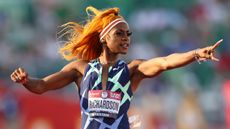 Doping in sport: should cannabis be on the list of banned substances?
Doping in sport: should cannabis be on the list of banned substances?feature World Anti-Doping Agency will launch a scientific review next year
By The Week Staff Published
-
 Cristiano Ronaldo’s second coming
Cristiano Ronaldo’s second comingSpeed Read Last week, Manchester United re-signed the forward on a two-year deal thought to be worth more than £400,000 a week
By The Week Staff Last updated
-
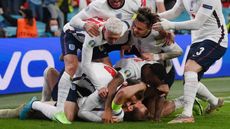 Bank holidays and boycotts: are MPs trying to jinx England?
Bank holidays and boycotts: are MPs trying to jinx England?Speed Read Declaring a bank holiday would be ‘tempting fate’, says Boris Johnson
By The Week Staff Published
-
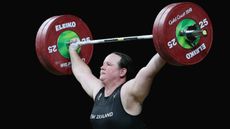 Weightlifting: Olympic Games set for transgender first
Weightlifting: Olympic Games set for transgender firstSpeed Read New Zealand weightlifter Laurel Hubbard will make history at Tokyo 2020
By The Week Staff Published
-
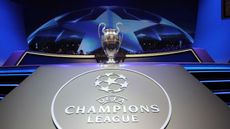 Sport shorts: Champions League expansion plan to be agreed
Sport shorts: Champions League expansion plan to be agreedSpeed Read News and reactions from the world of sport, featuring Joachim Low and the Lions women’s team
By Mike Starling Published
-
 Sport shorts: Sturgeon slams Rangers fans over title celebrations
Sport shorts: Sturgeon slams Rangers fans over title celebrationsSpeed Read News and reactions from the world of sport, featuring Keely Hodgkinson and Bryson DeChambeau
By Mike Starling Published